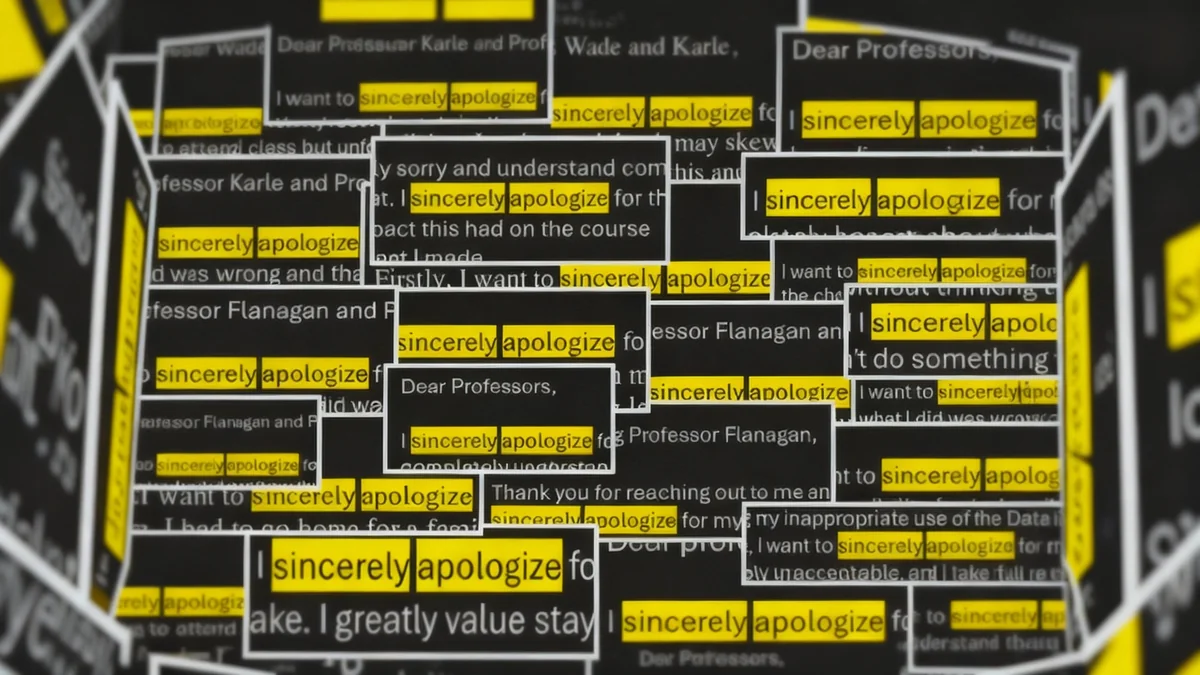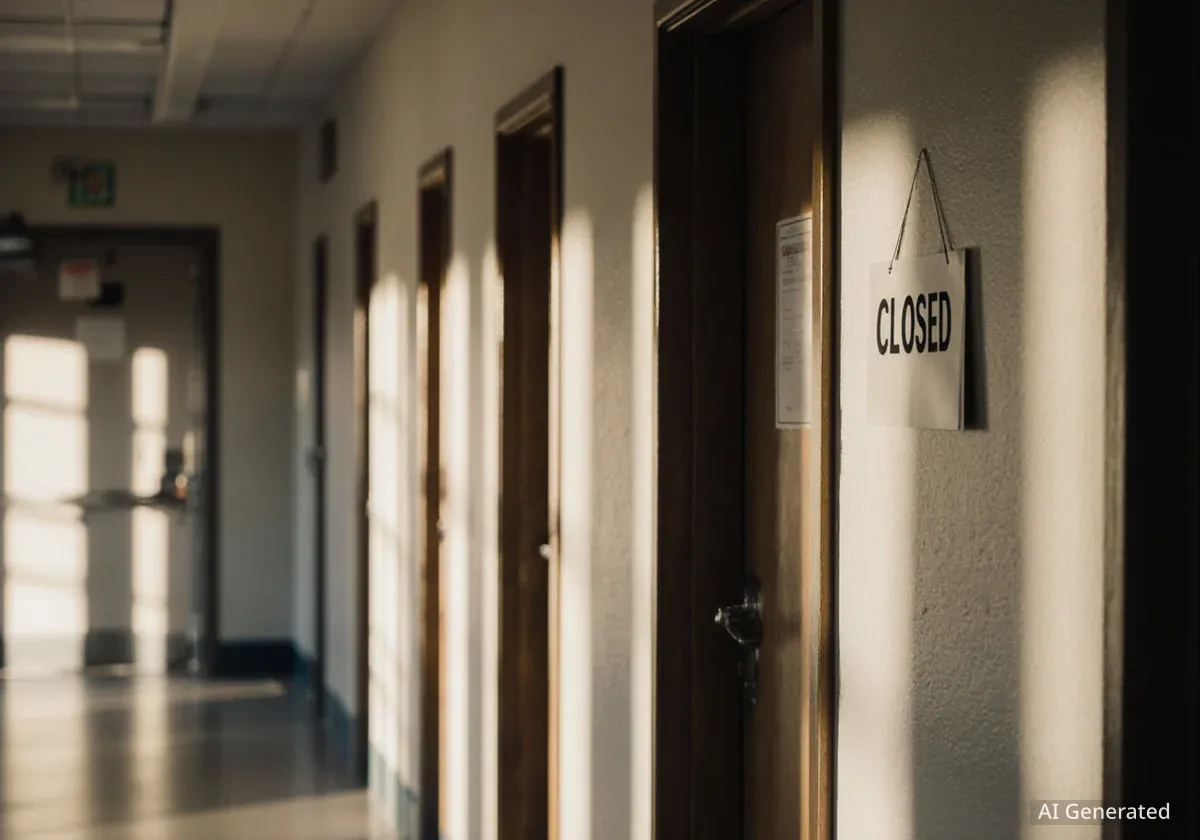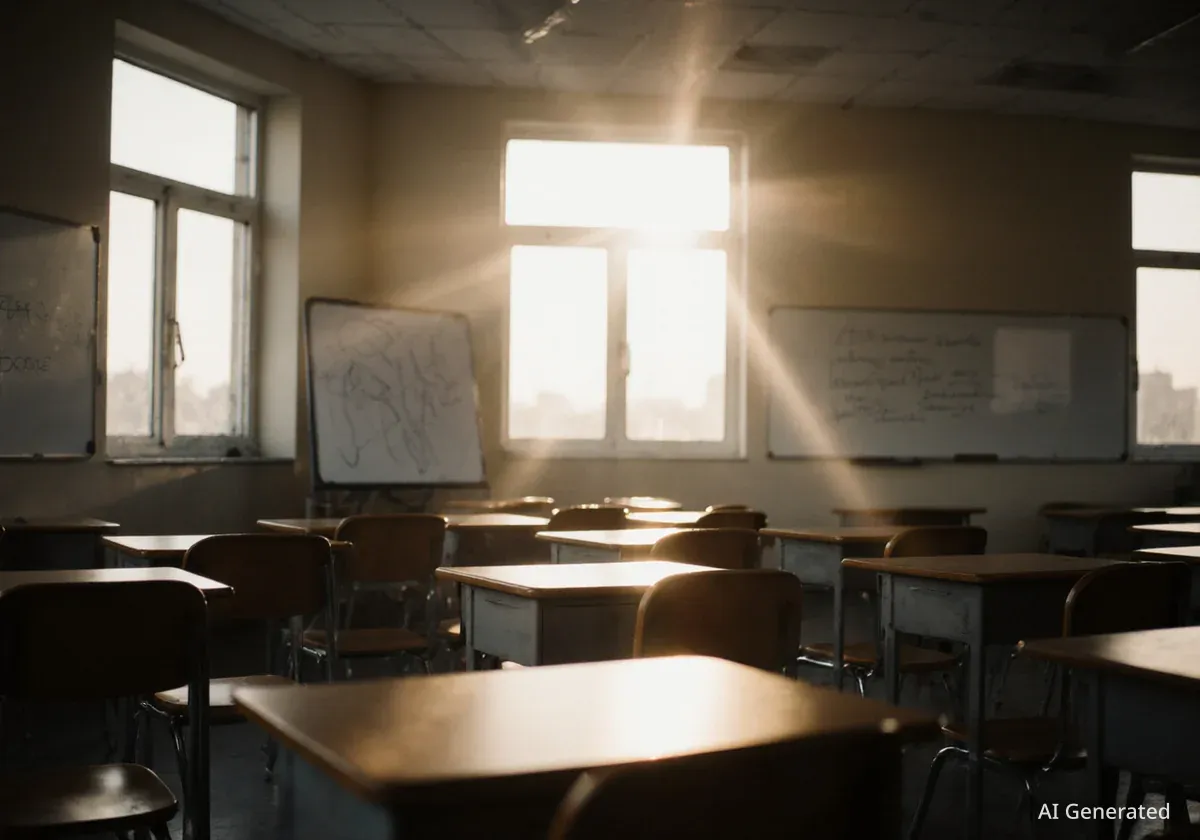Dozens of undergraduates at the University of Illinois Urbana-Champaign were recently caught in an unusual academic integrity case after submitting identical, AI-generated apology emails. The students, who had been accused of cheating in a data science course, used artificial intelligence to express remorse, a move their professors quickly identified and turned into a public lesson.
The incident highlights the growing challenges educators face in the age of generative AI, where the line between using a tool and committing academic dishonesty is becoming increasingly blurred. Rather than pursuing disciplinary action, the professors used the moment to engage students on the topic of authenticity and responsibility.
Key Takeaways
- Dozens of students in a University of Illinois data science course were accused of academic dishonesty.
- Many students submitted identical apology emails, which were discovered to be written by AI.
- The professors, Karle Flanagan and Wade Fagen-Ulmschneider, exposed the AI-written apologies during a lecture.
- No disciplinary action was taken; the professors instead used it as a lesson on academic integrity.
An Unfolding Academic Issue
The situation began when professors Karle Flanagan and Wade Fagen-Ulmschneider, known on campus as the "Data Science Duo," confronted students in their introductory course with allegations of cheating. The accusations centered on students falsifying their attendance records.
Following the confrontation, the professors expected to hear from students individually. What they received instead was a wave of emails that, at first glance, seemed appropriate. However, a pattern quickly emerged that raised new concerns.
A Chorus of Identical Apologies
Professor Flanagan began receiving emails from the students, each starting with a sincere-sounding opening. "They said, ‘Dear Professor Flanagan, I want to sincerely apologize,’" she recalled. While the first email was welcome, the sentiment quickly soured as more arrived.
"And then I got another email, the second email, and then the third," Flanagan explained. "And then everybody sort of sincerely apologizing, and suddenly it became a little less sincere." The identical phrasing and structure made it clear that the students had not written the apologies themselves. They had outsourced their contrition to an AI model.
The Rise of AI in Education
Educational institutions globally are grappling with the integration of artificial intelligence into academic life. While AI can be a powerful tool for research and learning, it also presents significant challenges to traditional methods of assessment and the principles of academic integrity. Universities are actively developing policies to define acceptable and unacceptable uses of AI in coursework.
A Public Lesson in Integrity
Instead of initiating formal disciplinary proceedings, Flanagan and Fagen-Ulmschneider saw an opportunity for a different kind of lesson. During a large lecture on October 17, they decided to address the issue head-on in a way the students would not forget.
In front of the entire class, the professors projected the text of the identical, AI-generated apology emails onto a large screen. The act served as a public reveal, a "gotcha moment" that was met not with defiance, but with a knowing recognition from the student body.
"You can hear the students laugh in the background of the video. They knew that it was something that they could see themselves doing."
– Professor Wade Fagen-Ulmschneider
The professors later shared a video of the moment on social media, where it gained widespread attention. The students' laughter indicated they understood the irony of the situation and recognized the flawed logic in using a machine to express a human emotion like remorse.
The professors' decision to use the incident for educational purposes reflects a broader shift in how some educators are approaching AI-related misconduct. The focus is moving from purely punitive measures to dialogue about ethics, authenticity, and the appropriate role of technology in learning.
The Broader Implications for Academia
This incident at the University of Illinois is a microcosm of a larger conversation happening in higher education. As AI tools become more sophisticated and accessible, defining what constitutes cheating is becoming more complex. While some uses of AI are explicitly banned, others fall into a gray area.
Navigating a New Technological Landscape
The key challenges for universities include:
- Updating Academic Policies: Institutions must create clear and enforceable rules regarding AI use.
- Educating Students: Students need guidance on ethical AI use, including proper citation and understanding when its use is inappropriate.
- Training Faculty: Educators require support and training to detect AI-generated content and adapt their teaching and assessment methods.
The case of the AI-generated apologies serves as a stark reminder that technology is evolving faster than policy. The professors involved believe that open dialogue, and even humor, can be an effective way to teach critical lessons about integrity that resonate more deeply than traditional punishment.
By choosing education over discipline, Flanagan and Fagen-Ulmschneider turned a moment of dishonesty into a memorable lesson on the importance of genuine accountability in the digital age.





